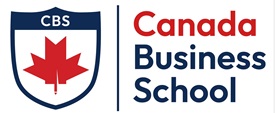The Integration of Experiential Learning in Canadian Business Schools

The Integration of Experiential Learning in Canadian Business Schools
Experiential learning is a dynamic and practical approach to education that emphasizes learning through experience, reflection, and application. In Canadian business schools, experiential learning has become a cornerstone of the curriculum, blending theoretical concepts with real-world applications to prepare students for leadership roles in today’s highly competitive and ever-changing marketplace. Here is a detailed overview of experiential learning and its integration into Canadian business education programs:
What is Experiential Learning?
Experiential learning focuses on hands-on, active participation in activities that mirror real-world challenges. The method is guided by the principle that true understanding comes from direct experience, coupled with critical reflection. In business schools, experiential learning involves activities such as simulations, internships, case studies, collaborative projects, entrepreneurial ventures, and service-learning opportunities.
How Experiential Learning is Integrated into Canadian Business Schools
-
Case Studies
- A central component of experiential learning in Canadian business schools is the use of case studies. Students analyze real business scenarios, diagnose issues, and propose detailed solutions. This teaches critical thinking, decision-making, and problem-solving skills.
- Case studies often focus on major challenges faced by Canadian or international businesses, enabling students to gain valuable insight into industry practices.
-
Internships and Co-op Programs
- Many Canadian business programs mandate internships or cooperative (co-op) education programs as part of graduation requirements. These programs provide students with hands-on experience working in corporate settings.
- Leading institutions like the University of British Columbia (UBC) and the University of Toronto have established partnerships with various industries, offering co-op students opportunities in finance, marketing, consulting, and other fields.
-
Simulations and Role-Playing
- Business simulations, negotiation role-play exercises, and leadership labs are widely embedded in courses to help students understand corporate dynamics in a risk-free environment.
- Simulations reflect real-world business challenges, such as drafting market strategies, setting investment priorities, and interacting with stakeholders.
-
Capstone Projects
- Capstone projects require students to apply learned theories to solve actual organizational problems. Students collaborate on research and propose solutions that are often presented directly to industry professionals.
- These projects are prevalent in MBA and Executive Education programs.
-
Service Learning
- Many Canadian business schools facilitate service-learning initiatives, where students work closely with nonprofit organizations or local businesses. This fosters civic responsibility and provides students with exposure to community-oriented entrepreneurship.
-
Entrepreneurship Incubators
- Entrepreneurship and innovation hubs are integrated into Canadian schools, such as Ryerson University’s DMZ or HEC Montréal’s entrepreneurial ecosystem. These hubs provide students with mentorship, funding, and resources to develop business ideas into viable enterprises.
- Startups developed by students often become actual companies, showcasing the success of experiential learning models.
-
Global Experiences
- International exchanges and study tours are a significant part of experiential learning, ensuring exposure to diverse cultural and business practices. Programs like the University of Toronto’s Rotman School of Management offer such opportunities to students, allowing them to study abroad while working on global projects.
-
Industry Partnerships
- Leading Canadian schools collaborate with corporations to bring experiential opportunities to the classroom. For example, the Schulich School of Business has partnerships with businesses, enabling students to work alongside industry leaders.
-
Hackathons and Competitions
- Hosting competitions such as case hackathons, business idea pitches, and finance tournaments is yet another strategy Canadian business schools use to bring experiential learning to classrooms.
- Competitions like the Rotman International Trading Competition (RITC) allow students to compete globally while mastering vital strategic skills.
Benefits of Experiential Learning in Canadian Business Schools
-
Skill Development
- Students develop leadership, teamwork, communication, and decision-making skills through practical engagement.
- Exposure to dynamic environments enhances adaptability and analytical thinking.
-
Career Readiness
- Experiential learning prepares students for the workforce by aligning educational experiences with industry expectations.
- Surveys from top Canadian business schools like Ivey and Queen’s reveal that graduates with experiential learning backgrounds often have higher employability rates.
-
Bridging the Gap Between Theory and Practice
- Canadian business schools integrate experiential learning to ensure theoretical ideas taught in the classroom directly connect to real-world applications. This makes concepts more relatable and actionable.
-
Networking Opportunities
- Internships and co-op experiences facilitate direct connections with industry professionals, ensuring students have strong networks even before entering the workforce.
-
Personalized Learning
- Experiential learning projects are often tailored to individual or group interests, enabling students to explore areas of business closely tied to their future personal or career goals.
Examples of Canadian Business Schools Leading Experiential Learning Practices
-
University of Toronto – Rotman School of Management
- Rotman integrates case competitions, capstone projects, and international business exchanges that focus on experiential learning. Their MBA program includes options for internships with major financial institutions in Canada.
-
University of British Columbia – Sauder School of Business
- Sauder offers co-op programs in partnership with organizations across Canada, emphasizing hands-on experience for undergraduate and graduate students.
-
York University – Schulich School of Business
- With its focus on entrepreneurship and innovation, Schulich includes business incubators that help students create and manage startups.
-
Western University – Ivey Business School
- Ivey is renowned for its case-study teaching method. Students tackle over 300 case challenges, preparing them for real-world decision-making.
-
HEC Montréal
- HEC Montréal emphasizes experiential learning through simulation labs and hands-on guidance in entrepreneurship.
Challenges in Implementing Experiential Learning
While experiential learning has significantly enriched business education in Canada, the model comes with challenges:
-
Resource Intensive
- Building industry connections, creating partnerships, and maintaining internships or co-op programs require heavy investments.
-
Evaluation Complexity
- Assessing experiential learning outcomes (such as performance in internships or reflection in case studies) can be subjective.
-
Scalability
- For larger cohorts, providing individualized experiential learning opportunities like internships is more challenging.
Conclusion
The integration of experiential learning in Canadian business schools has revolutionized the educational landscape. By embedding hands-on learning opportunities such as case studies, internships, entrepreneurship incubators, and global exchanges, institutions ensure that students graduate not only with theoretical knowledge but also with practical skills to thrive in the modern business world. Challenges notwithstanding, experiential learning continues to prepare leaders, innovators, and socially responsible entrepreneurs, placing Canadian business schools among the best globally.
